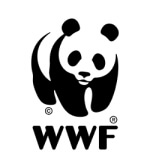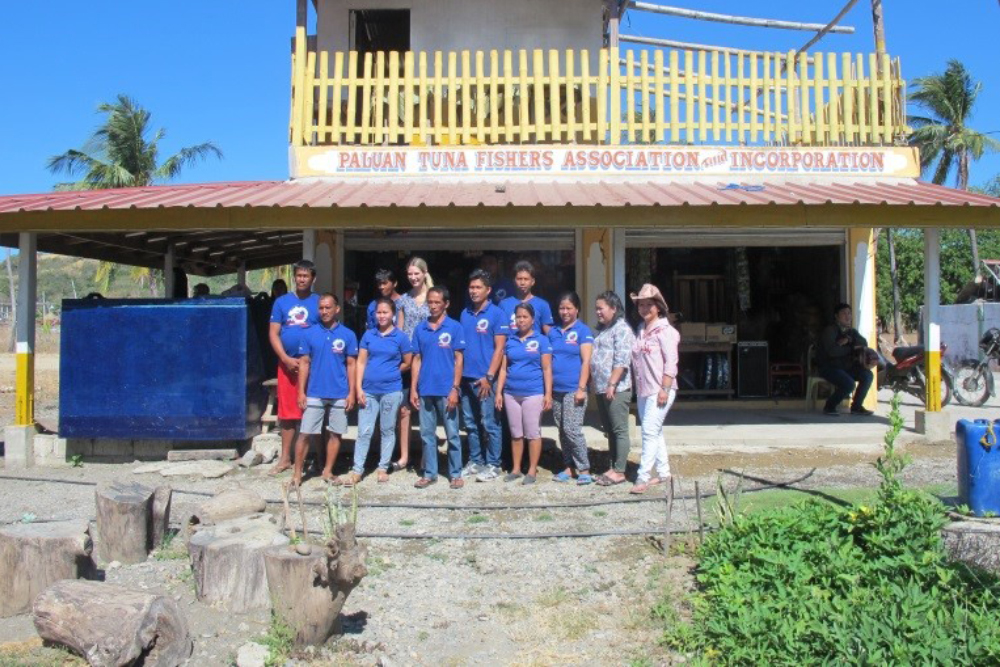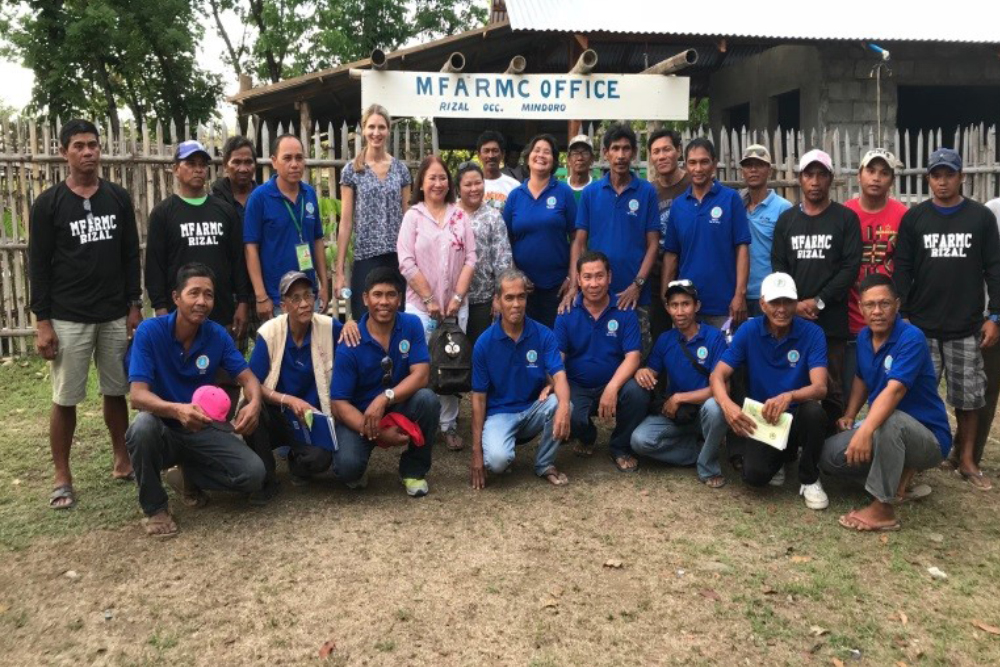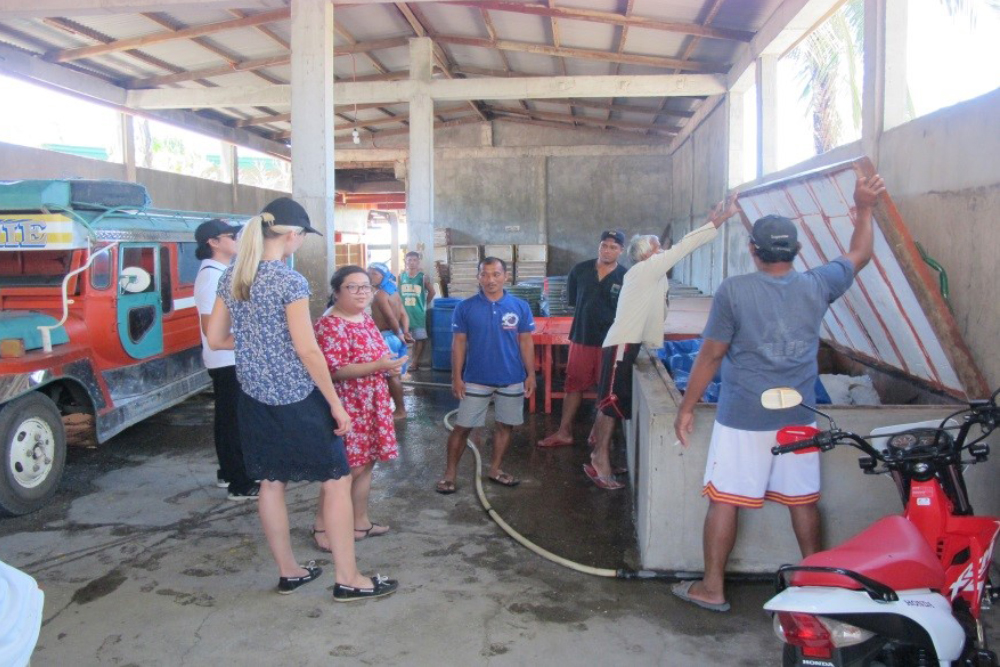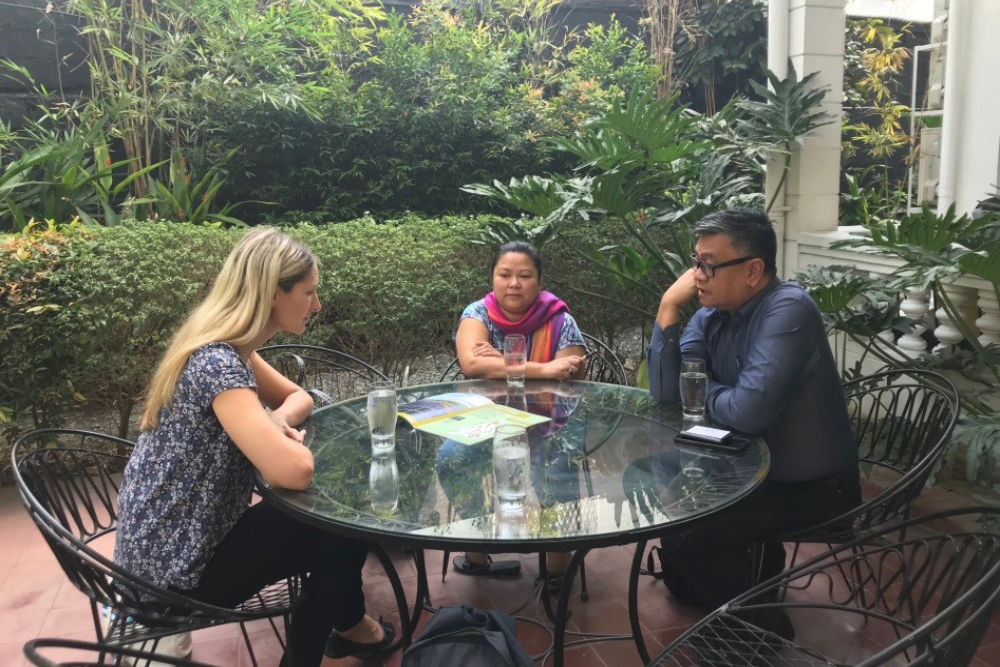In Occidental Mindoro, from Paluan, to Sablayan, to Rizal, to San Jose, the plight of the tuna fisherfolk is the same: they ask for transparent pricing, quality buying, and stable tuna prices. And these are what WWF, in cooperation with the Tambuyog Development Center and the German Federal Ministry of Economic Cooperation and Development (BMZ), hope to give them in the new Sustainable Tuna Partnership.
On March 12, 2018, a team from WWF-Philippines traveled through the coastal communities of Occidental Mindoro with Julia Haasler, a representative from the German Federal Ministry of Economic Cooperation and Development (BMZ), and Betty Cordero, a seafood importer based in the United States. Together, the group had meetings with various fisherfolk associations and local fishermen. Julia asked questions about the problems the fisherfolk face, the improvements they need, their partnership with WWF, and their hopes and wishes for the future.
When WWF first started working with the fisherfolk in Mindoro, one of the project sites for the Partnership Program Towards Sustainable Tuna, WWF wanted to focus on conserving the environment and improving the lives of fisherfolk through sustainable fishing. However, while the fisherfolk were able to improve their skills in handling fish to ensure better quality, WWF found that they remained in poverty. Evidently, there were problems that lay elsewhere.
One of the most important social relationships the fisherfolk rely on is their relationship with their local traders, which they call casas. During the lean months when tuna is not in season, fisherfolk turn to casas for financial aid, thus indebting themselves to the traders. When the tuna starts to come in, the fisherfolk have no negotiating power with the traders because of their debts. They are forced to sell their fish at the price dictated to them, thus ensuring they remain indebted to the traders. The traders themselves claim they are beholden to the exporters, who live far away from the locals. As the tuna goes through more and more levels in the supply chain, less and less money is left for the fisherfolk.
Thus, one of the aims of the Sustainable Tuna Partnership is to lessen the indebtedness of the local fishers to the casas. The STP plans to do this by offering the fisherfolk trainings on financial management and accounting. The STP also plans to empower local fisherfolk by giving them a greater voice in local government, thus giving them other avenues of financial assistance during the lean seasons. By bringing in a foreign exporter, WWF hopes to start a program that allows Tuna Fishers Associations to buy tuna directly from the fisherfolk and sell directly to foreign exporters, thus increasing the profit margins for the fisherfolk.
In the final meeting of the day, Julia talked to local authorities from the Department of Trade and Industry and from the provincial government to get a clearer, big-picture view of the work WWF has done in cooperation with multiple stakeholders. The next day, Julia also had a meeting with WWF President and CEO Jose Angelito Palma, where they discussed the work of WWF in the Philippines.
Julia says of the experience, “The project visit of the WWF MAP (Multi-Actor Partnership) has been very helpful and interesting to me, and I am pleased to see that there good progress in the project. I was very impressed by the motivated staff as well as by the target group, which contributes massively to a transformation. I wish you all the best and continued success in the implementation of the project.”
In the same site, WWF-Philippines is also working with WWF-Austria, along with 11 European WWF partners and 4 partners with WWF offices in developing countries for the Fish Forward 2 Project. This project aims to encourage European consumers to choose sustainable seafood. On the developing countries’ side, we aim to empower stakeholders to be adequately included into the seafood value chain to Europe.

